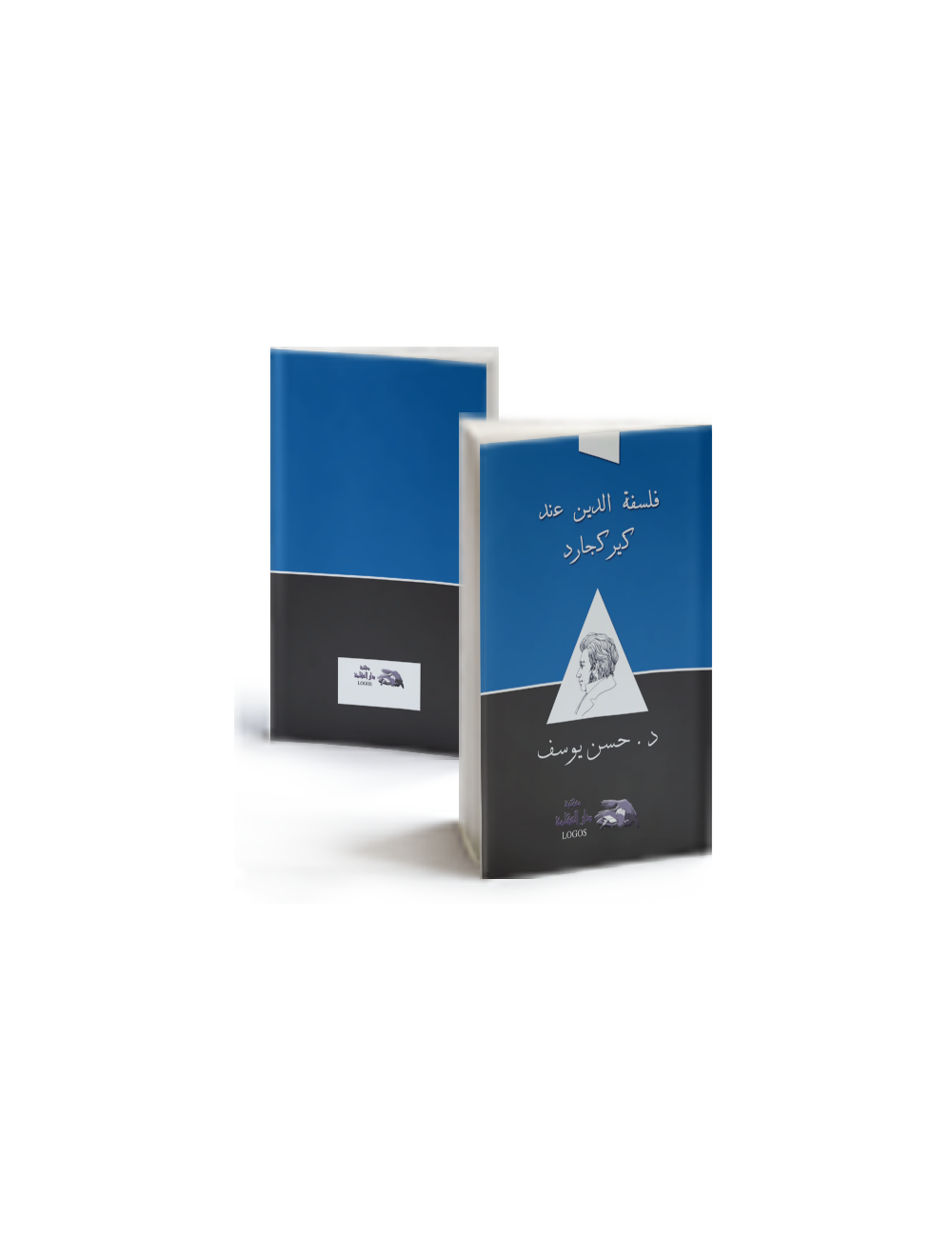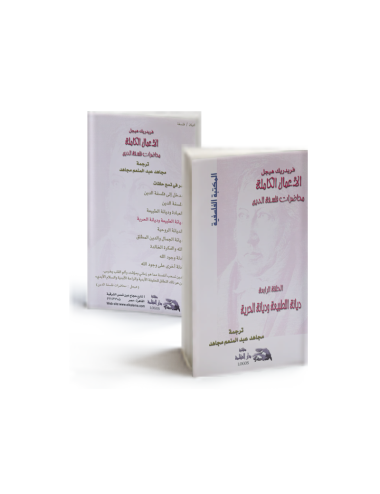- On sale!


Reidar Thomte's Kierkegaard's Philosophy of Religion is an excellent read for students beginning their study of one of the "greats" of the nineteenth and twentieth century philosophy. Thomte directly appropriates Kierkegaard's insightful language and discussion of theological and philosophical issues that stimulated him, all of which are still alive and well today.
Security policy
Delivery policy
Terms And Conditions
Reidar Thomte's Kierkegaard's Philosophy of Religion is an excellent read for students beginning their study of one of the "greats" of nineteenth and twentieth century philosophy. Thomte directly appropriates Kierkegaard's insightful language and discussion of the theological and philosophical issues that stimulated him, all of which are still alive and well today. This approach has the happy result that readers seeking an introduction do not have to be led through technical debates in order to approach Kierkegaard's thought. Thomte is a master of incisive summary; his presentations of crucial distinctions are level-headed and to the point. Kierkegaard's categories such as "the stages on life's way" (the aesthetic, the ethical, Religiousness A, and Religiousness B), the individual, subjectivity, the Paradox, the varieties of love, faith and knowledge, etc., are provocative and illuminating. Not only is this book a good a "starter," it is also a comprehensive review of the principal issues in Kierkegaard's philosophy of religion. (by Robert L. Perkins, Editor, International Kierkegaard Commentary)
Product |

Sale!
Philosophy of Religion of Kierkegaerd
|
 Philosophy does not wear a feminine outfit
Philosophy does not wear a feminine outfit
|

Sale!
Lectures on the philosophy of religion: The Religion of Nature and the Religion of Freedom
|
 Dynamics of Faith
Dynamics of Faith
|
Availability |
in stock
|
|
in stock
|
In Stock
|
Price |
E£110.00
|
E£110.00
|
E£110.00
|
E£110.00
|
Description |
Reidar Thomte's Kierkegaard's Philosophy of Religion is an excellent read for students beginning their study of one of the "greats" of the nineteenth and twentieth century philosophy. Thomte directly appropriates Kierkegaard's insightful language and discussion of theological and philosophical issues that stimulated him, all of which are still alive and well today. |
“A man is not born a woman, a man (becomes) a woman” (4: 156) |
One of the greatest books ever written on the subject, Dynamics of Faithis a primer in the philosophy of religion. Paul Tillich, a leading theologian of the twentieth century, explores the idea of faith in all its dimensions, while defining the concept in the process. This graceful and accessible volume contains a new introduction by Marion Pauck, Tillich's biographer. |
|
ISBN |
977-6010-16-4 | 978-977-384-278-2 | 977-6010-65-2 | 977-384-156-1 |
Author |
Hassan Youssef | Mejahed Abdelmeaim mejahed | Georg Wilhelm Friedrich Hegel | Paul Tillich |
Translator |
Mejahed Abdelmeaim mejahed | Mejahed Abdelmeaim mejahed | ||
Editor |
Mohamed H. A. Ghoneam | |||
Original Language |
Arabic | Arabic | English | English |
Language |
Arabic (Translated) | Arabic (Translated) | ||
Format |
Paperback | Paperback | Paperback | Paperback |
Publishing House |
Maktabet Dar El Kalema Publishing House | Maktabet Dar El Kalema Publishing House | Maktabet Dar El Kalema Publishing House | Maktabet Dar El Kalema Publishing House |
Number of Pages |
156 | 116 | 162 | 176 |
Product Dimensions |
20.5×14× 0.5 cm | 21.5×12.3×0.5 | 20.3×14×0.8 | 20×12.4×1.2 |
Product Weight |
152 gm | 130 gm | 158 gm | 152 gm |
|
|
|
|
|
This book deals with discussing topics at the same time. This may be a possible opportunity and a possible opportunity coincides with a unique opportunity.
Berdyev's life was nothing but a triangular struggle against the aristocratic environment in which his family belonged and lived in it, against the revolutionary Marxist environment in which he lived during his first youth and against the orthodox environment in which he lived a mature period in a certain sense.
The normal, eternal, absolute idea - in its eternal existence - in and of itself - is God in his eternity or eternity before the creation of the world, and outside the world.
This comprehensive exploration of the interpretive process,
has served as a successful textbook. It focuses on the three "worlds" of biblical interpretation--the world of the author, the world of the text, and the world of the reader--to help students develop an integrated hermeneutical strategy. The book offers clear explanations of interpretive approaches, which are supported by helpful biblical examples, and succinct synopses of various interpretive methods. Pedagogical aids include end-of-chapter review and study sections with key terms, study questions, and suggestions for further reading.
There is a common theme linking these studies this topic comes from the depth and diversity and richness of human nature from the side, and the other side also stems from humans and worthlessness in this nature.
In this book by Rollo May discusses some of the characteristics of human nature and human under the title of "problematic".
First published in 1968, the year of international-student confrontation and revolution, this classic challenges readers to choose which of two roads humankind ought to take: the one, leading to a completely mechanized society with the individual a helpless cog in a machine bent on mass destruction; or the second, being the path of humanism and hope.
Paul Tillich was a German theologian and philosopher who moved to the United States after having to flee from Nazis in the 1930s. He became a lecturer at Yale University in Connecticut
The Philosophy of Humanistic Ethics vs. The Philosophy of Authoritarian Ethics
The Philosophy of Subjective Ethics vs. The Philosophy of Objective Ethics
Anthropology
The Heritage of Humanistic Ethics Philosophy
The Philosophy of Ethics and Psychoanalysis
In this collaborative work the authors closely explore the growing academic and cultural interest in spirituality and spiritual transformation. They argue that "we are witnessing a new horizon of converging interest in the intersections between science, religion, and spirituality." Organized in three parts--transforming spirituality in psychology, transforming spirituality in theology, and modeling spiritual transformation--Transforming Spirituality fills a void in the current literature. In turn, its nine chapters discuss spirituality in relation to health, human development, the biblical tradition, philosophy, and the natural sciences.
What is art criticism?
What are the boundaries between art criticism and social criticism?
What are the different streams of criticism?
What is the contemporary critical landscape?
Man creates masterpieces of literature and art, but he does not want to be satisfied with this, but rather he wants to understand what is behind his creativity.
The world houses people equally with natural things. When the world is thus treated as a gathering or even a gathering of natural things, it is not conceived as nature, and we do not understand that it is something that is in itself a holistic system, a system of regulations and arrangements, especially laws.
The Ancient Greek philosophers have played a pivotal role in the shaping of the western philosophical tradition. This book surveys the seminal works and ideas of key figures in the Ancient Greek philosophical tradition from the Presocratics to the Neoplatonists. It highlights their main philosophical concerns and the evolution in their thought from the sixth century BCE to the sixth century CE.
Can we run from that which never misses?
Heraclitus asks

Reidar Thomte's Kierkegaard's Philosophy of Religion is an excellent read for students beginning their study of one of the "greats" of the nineteenth and twentieth century philosophy. Thomte directly appropriates Kierkegaard's insightful language and discussion of theological and philosophical issues that stimulated him, all of which are still alive and well today.

Product Comments